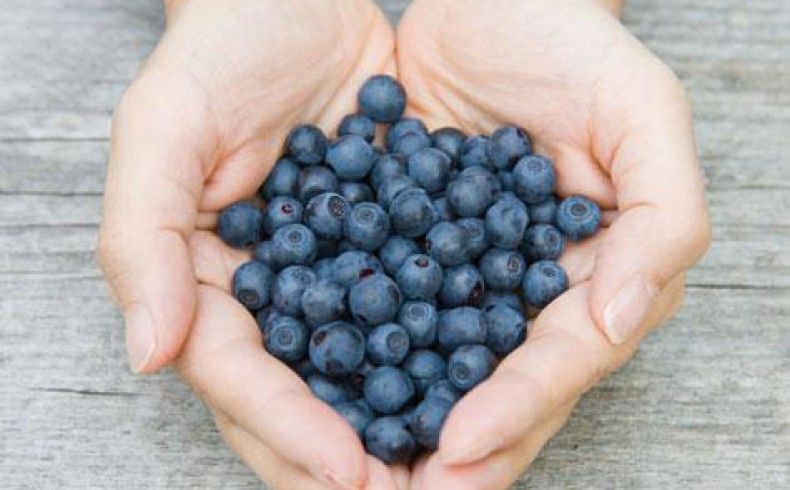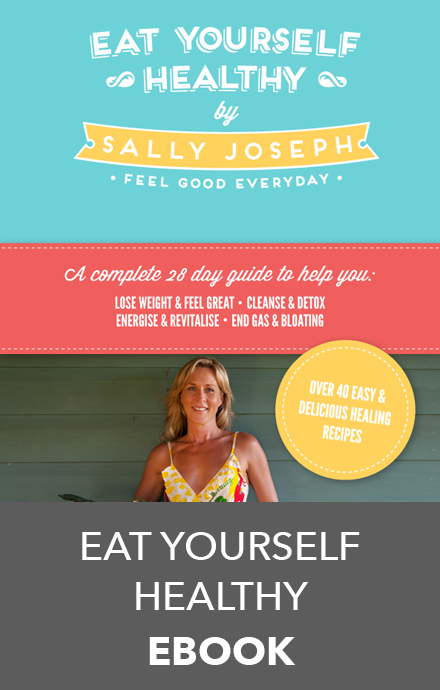
Blueberries have long been hailed for their powerful nutritional properties, in particular their potent anti-oxidant and phyto-chemical compounds, (thanks to their dark pigment) which protect against cancer causing free radicals. Blueberries are also one of the lowest fructose containing fruits you can eat, making them perfect as for a low sugar snack, without tipping the insulin levels into overdrive! For these reasons blueberries are an extremely healthy food source, earning a reputation as a ‘superfood’!
However……thanks to modern day farming methods…..there’s a catch. Blueberries, (along with other berries) are one of the most chemically contaminated crops, thanks to being heavily sprayed with chemical fungicides and organophosphates (insecticides and pesticides),to protect against invasion from various insects and fungus diseases. In case you are not aware of the origin of organophosphate chemicals, they actually came into use as a nerve gases in the First World War to attack the nervous system.
As consumers, we are becoming more and more aware of the health risks associated with eating foods exposed to chemical pesticides, herbicides and fungicides. For this reason many of us are now choosing to eat more organically produced foods. But as you will have read in my recent post about the dirty dozen, there are some foods that contain much higher levels of chemical residues, especially commercially grown blueberries.
The producers of crops such as blueberries will recommend their workers where protective gear when spraying with chemicals to prevent against contamination and we know that many pesticides used in blueberry spraying, are toxic to fish, birds, honey bees and mammals (including humans).
‘Captan’, a common chemical fungicide sprayed on blueberries up to 2 days before harvest, is banned in some countries including Sweden, because of its links to cancers, birth defects and miscarriage. A study of farmers using organophosphate chemicals, published in the Journal of the American Medical Association, showed conclusive links between certain organophosphates and non- Hodgkin’s Lymphoma. (A type of cancer).
Many of you who have children will know most kids LOVE eating berries because of their bright colours, sweet taste and small bite sizes, which is technically a good thing because berries are a particularly rich source of nutrition. When I visited my nieces who live in the States last year, their mother was commenting on how cheap foods such as berries were compared to Australia. Because commercially grown berries were such a bargain in the US, especially when purchased in bulk, she no longer felt the need to ration them to the kids, so they were eating them by the bucketload. But what she, like many mothers didn’t realise was that by doing so, she was also exposing her children to higher levels of toxic chemicals. Because children’s body’s are smaller than adults, their systems tend to absorb more nutrients and toxins than adults, so even low levels of chemical residue accumulated from eating chemically sprayed food over time, will affect a child’s health more profoundly than an adult. Chemical and heavy metal toxicity has been touted as one of the potential reasons for the rise in nervous system related disorders in children such as ADHD and autism.
Now you might be thinking to yourself, ‘yes but I wash my berries in water to clean off the chemical residue’, but I’m sorry to be the bearer of more bad news, but simply rinsing your berries, or any fruit and vege that has been chemically sprayed for that matter, DOES NOT remove all of the pesticide residue because pesticides can be incorporated into the food itself, because they are sprayed throughout a plant’s life cycle. Pesticides also soak into the soil, where they may be absorbed into a plant’s roots and distributed throughout the fruit or vegetable.
So the only way to truly ensure you and your children are avoiding these toxic chemical residues, is to buy organic when it comes to blueberries, in fact ALL berries and foods listed on the dirty dozen directory should be consumed from organically grown sources. I know they are more expensive, however I’m sure you will agree, it’s worth paying more to avoid toxic chemicals in your food.
My preferred choice for consuming blue berries are frozen blueberries – reason one being because they have less than half the number of insecticides compared to fresh berries and secondly because frozen blueberries provide a much higher nutritional load of the nutritious berry pigments compared to fresh berries.
If you live in Australia, check out Australian Organic Directory for a comprehensive guide to organic suppliers and products.
How much of your fresh fruit and vege do you buy organic?
To find out more about the specific pesticides on these fruits and vegetables, go to http://www.whatsonmyfood.org/index.jsp
If you’re interested to read more about the benefits of eating organic and chemical free food, check out this article here
This American website provides more details regarding the chemical sprays used on their blueberries, here


Health & Lifestyle Tips
Delicious Healthy Recipes
Educational & Recipe Videos









Hi Amy the easiest thing to do would be to ask your local health food store to order in an organic brand x
Hi Amy the easiest thing to do would be to ask your local health food store to order in an organic brand x
Hello Amy sadly I don’t but you could try organic directory http://www.australianorganicdirectory.com.au/FOOD/Organic-Nuts-&-Fruit.htm and let me know if you have any luck
🙂 Take care and thanks for stopping by my blog x
Hello Amy sadly I don’t but you could try organic directory http://www.australianorganicdirectory.com.au/FOOD/Organic-Nuts-&-Fruit.htm and let me know if you have any luck
🙂 Take care and thanks for stopping by my blog x
Hi Sally
Do you know any shops/farmers/brands that sell certified organic berries? I am in Adelaide SA.
Thanks 🙂
Hi Sally
Do you know any shops/farmers/brands that sell certified organic berries? I am in Adelaide SA.
Thanks 🙂